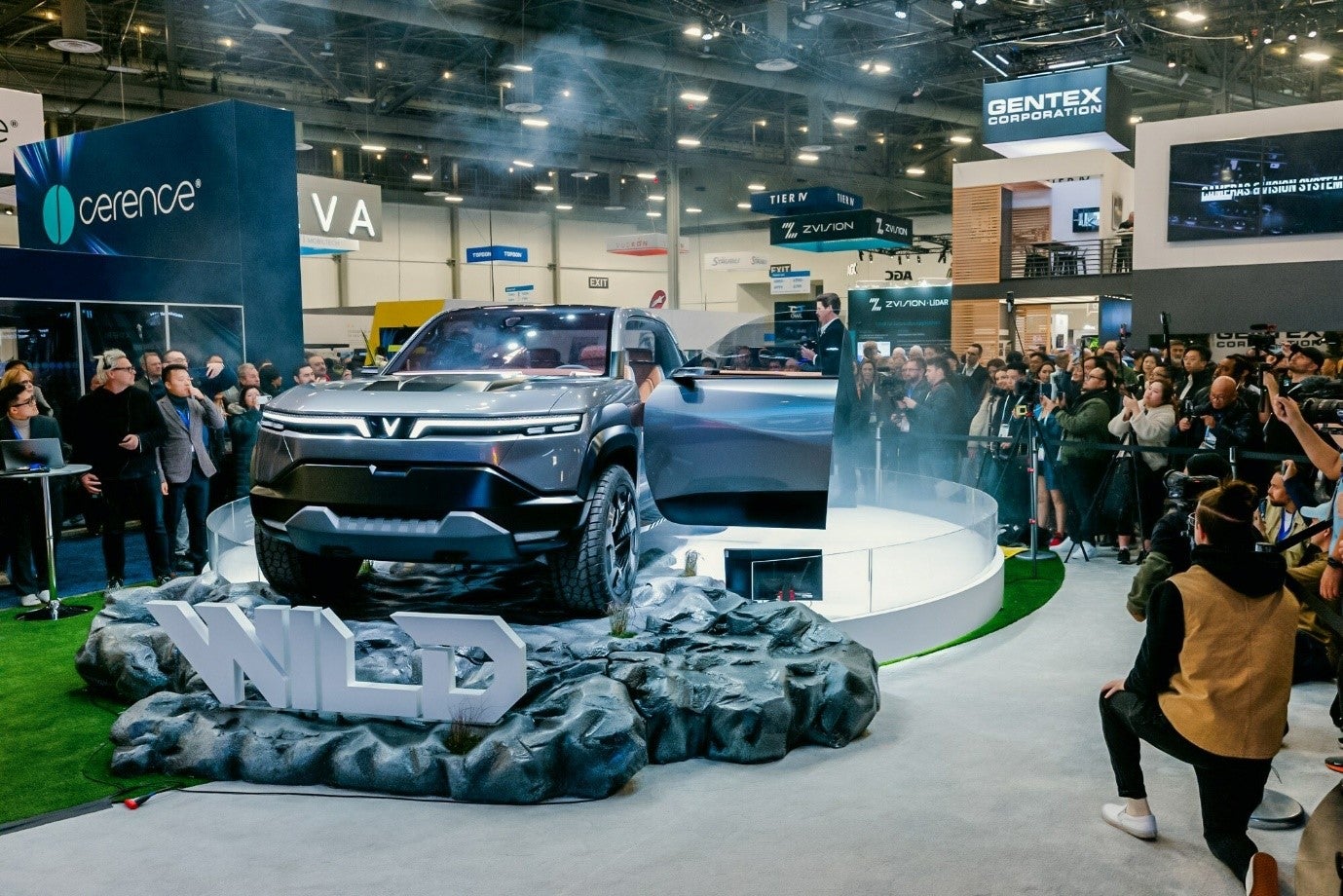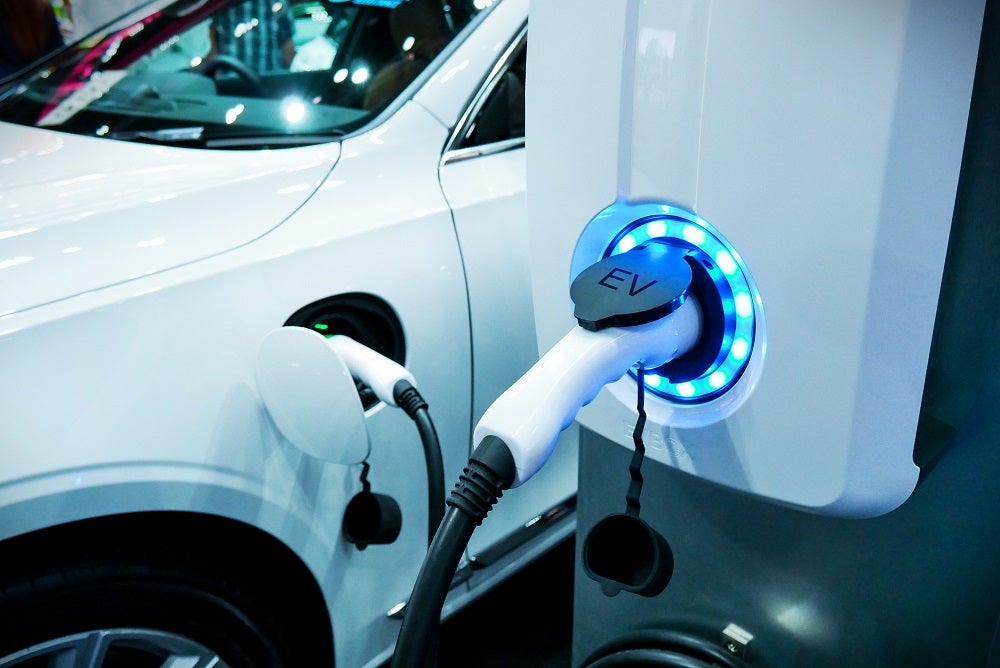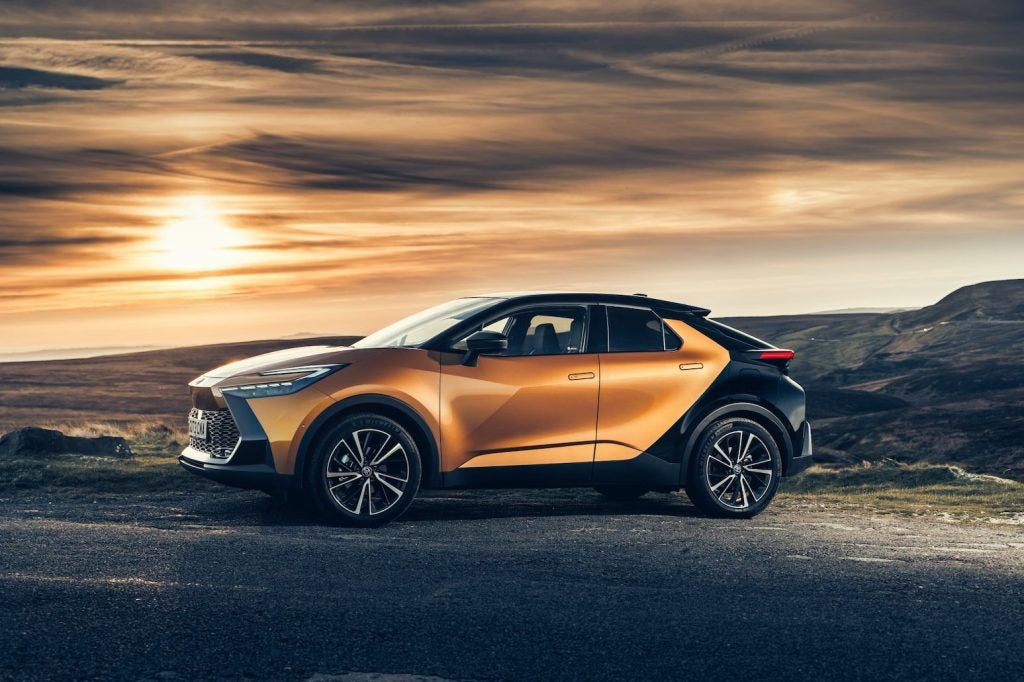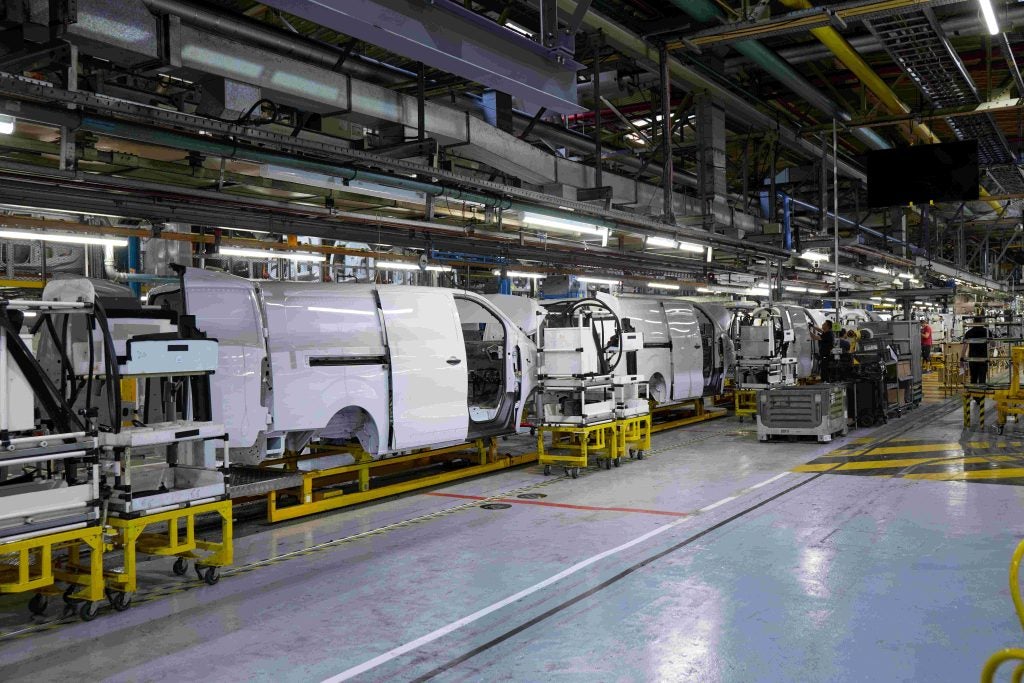
A scheme by UK telecoms giant BT Group that will see near end of life green street telecoms cabinets converted to become electric vehicle (EV) charging points could have a significant impact on the country’s rollout of the infrastructure as a whole but is unlikely to deliver much needed fast chargers. The initiative, announced on Monday (8 January) and run by BT’s startup and digital incubation arm Etc., could see up to 60,000 cabinets repurposed for use in this way. That figure is more than the current 53,000 public EV charge points in 31,000 locations currently installed across the UK’s road network, according to EV charging map Zapmap, and, if achieved, could represent a large portion of the 300,000 the government is targeting by 2030. It would also help to supplement the more than 680,000 charging points Zapmap estimates are installed at private locations such as homes and workplaces. The need to adequately roll out charging infrastructure in the UK – across the road network in particular – is pressing. GlobalData analysis indicates that there are now nearly a million battery electric vehicles (BEVs) on the road in the UK, with the figure expected to rise to around 1.9m by the end of 2025 and around 7.8m by 2030.
UK EV gloom
New figures show that the share of UK battery electric vehicles (BEV) sales as a share of new car sales fell last year for the first time since 2018. This adds to concerns that the UK is stalling when it comes to the global EV race. While total BEV sales saw an annual increase of 17.8% in 2023, their market share dipped slightly from 16.6% to 16.5%, according to new data from the Society of Motors Manufacturers and Traders (SMMT). This remains far off the UK’s target of 22% by 2024. In response to these figures, SMMT chief executive Mike Hawes has called for a tax cut for EVs, arguing for the government to offer consumer incentives that “will make the UK the leading European market for ZEVs [zero-emissions vehicles]”. Since the closure of the UK’s temporary “plug-in” grant in summer 2022, which offered discounts on new, low-emissions vehicles, the UK has become the only major European market with no BEV incentives. However, the lack of incentives is just the tip of the iceberg, with the past few years witnessing a series of policy setbacks that, combined with a lack of investment, have eroded the success of the UK’s EV sector. In a now-infamous September 2023 speech dismantling a number of the UK’s key net-zero policies, UK Prime Minister Rishi Sunak dealt a blow to EV manufacturers by announcing a five-year delay to the UK’s ICE cars phase-out, from 2030 to 2035. Sunak justified his net-zero policy blitz (which also included a delay to the UK’s gas-fired boiler ban, and new, less ambitious home energy efficiency targets), by arguing that it would relieve consumers of the high upfront costs associated with net zero, like purchasing an EV. He also argued that it would provide car manufacturers with more time to transition to EVs. A handful of car manufacturers were “grateful for the extra breathing space”, and the Guardian has since revealed that major carmakers including Toyota, Jaguar Land Rover and Nissan, lobbied the UK Government to weaken or delay the ICE ban. Others, including Volkswagen, Ford and Tesla, had argued for an even tougher ZEV mandate. Ford, Vauxhall Motors, Rolls-Royce and Bentley had all already announced plans to phase out petrol cars from 2030. Ford’s UK chair Lisa Brankin called the relaxation of the 2030 target an unhelpful policy signal that undermined the company’s plans.
Prevention key to cybersecurity
All industries go through periods of dramatic evolution. For the automotive industry, that time is now. Following 100 years of the ‘petroleum engine’ era the industry is being forced to change the heart of the car – the engine – from fossil fuels to electric. Another exciting evolution is the application of Artificial Intelligence (AI) to power driver assistance technology and the development of autonomous vehicles. The speed of this transformation is unique in comparison to the age of this industry. Another element further complicating the business model for automotive manufacturers is the option to customise vehicles after they’ve left production and are sitting outside new owners homes. While Tesla is pioneering this area other manufacturers are also looking to adopt ‘over-the-air’ software updates that introduce new features and updates to the vehicle making it safer and more capable over time. Enabling this adaptation has seen traditional automotive manufacturers re-invent car digitalisation powered by cloud and AI. And it’s not just the vehicles themselves that are evolving but the production process is also facing an overhaul. Automation adoption by automakers has always been ahead of the curve, with industrial robots and sensor technology used in assembly plants to increase productivity and efficiency for many years, but increasingly artificial intelligence is part of this process. According to Deloitte, the automotive AI market size is forecasted to grow to $27 billion by 2025 — more than double its size today. Powering all of this evolution is IT transformation. The time of old segregated operational technology (OT), used to control physical systems on a traditional production line, is over. Instead Industrial Internet of Things (IIoT), connected devices, cloud and traditional technology are all part of the physical car production supply chain. However, any rapid IT transformation isn’t without risks and cybercriminals have stepped into the breach and capitalised on the opportunity to deploy attacks and compromise these new processes. A cyber attack can result in significant financial losses, production downtime, and reputational damage. In some cases, a cyber attack on critical machinery can also result in safety risks for workers.
Mixed West Europe results
How well do you really know your competitors?
Access the most comprehensive Company Profiles on the market, powered by GlobalData. Save hours of research. Gain competitive edge.

Thank you!
Your download email will arrive shortly
Not ready to buy yet? Download a free sample
We are confident about the unique quality of our Company Profiles. However, we want you to make the most beneficial decision for your business, so we offer a free sample that you can download by submitting the below form
By GlobalDataThe Western Europe PV selling rate rose to 13 million units/year with 951k vehicle registrations. Despite this, a strong December 2022 meant the YoY result was negative. The market’s YoY activity saw a drag from Germany along with Netherlands, Norway and Sweden. The region finished 2023 with 11.6 million units, higher than the 10.1 million units recorded in 2022 but well behind the 14.3 million units registered in 2019. Germany recorded 242k vehicle registrations in December 2023, 23% lower than the same month in 2022, which constitutes the largest YoY fall of the year. Despite the selling rate rising to 3.4 million units/year in December, the latest YoY fall came due to December 2022 being an unusually strong month given the end of EV incentives in January 2023. However, there may also be an element of sales being dampened due to worsening economic conditions in Germany. Overall, for 2023, the PV market reached 2.8 million vehicle registrations. The UK PV market registered 141k units in December 2023 (+9.8% YoY), completing a clean sweep of positive monthly YoY results. With a selling rate of 2.2 million units/year last month, the PV market reached 1.9 million registrations in 2023, better than other post-pandemic years but still behind 2019 levels.
Aftermarket EV opportunity
The 18th edition of Automechanika Shanghai – a show focused on the aftermarket side of the industry, but increasingly leaning towards more OE and emerging tech – was held last month. Fuel systems and aftermarket parts supplier Phinia was among the exhibitors there. In an interview with Just Auto, Kevin Price, Global brand communication director, Phinia Inc, highlighted the opportunities – from an aftermarket perspective.
New battery tech
Ventures, the corporate venture fund of Stellantis, has announced its participation as a strategic investor in Tiamat, a France-based company that is developing and commercialising sodium-ion battery technology. Stellantis says sodium-ion technology offers a lower cost per kilowatt-hour and is free of lithium and cobalt. Abundantly available sodium offers benefits in increased sustainability and material sovereignty, the company maintains. Tiamat was one of 11 top-performing technology start-ups to receive a Stellantis Ventures Award in 2023, and Stellantis says is ‘the first company in the world to have recently commercialized a sodium-ion technology in an electrified product.’
VW to Polestar
Polestar has announced changes to its Board of Directors and Management Team. Winfried Vahland has been appointed to the Board as a new director. He was previously CEO and President of Volkswagen Group China, Chairman of the Executive Board of Skoda Auto and a Member of the Board of Volvo Cars. He is currently Member of the Supervisory Board of Proton Holdings.
Be afraid
Sales of Chinese made vehicles rose by 23% to 3.156m units in December 2023 from 2.556 million units a year earlier, according to passenger car and commercial vehicle wholesale data collected by the China Association of Automobile Manufacturers (CAAM). Total vehicle sales, including exports, increased 12% to a record 30.09m units last year from 26.9m in 2022, with passenger vehicle sales rising by 11% to 26.1m units while commercial vehicle sales were 22% higher at 4.03m. The domestic vehicle market was estimated to have expanded by just 6% to 25.18m units last year with buyers attracted by the large number of new passenger vehicle models launched over the last year and by aggressive promotional campaigns and deep discounting by vehicle manufacturers and dealers. The commercial vehicle market rebounded more strongly from weak levels in the previous year, as the country continued its gradual recovery from the Covid pandemic. Overall exports surged 58% to 4.91m units last year, helped by soaring sales in Russia after numerous brands withdrew from this market due the invasion of Ukraine. Total vehicle production in China rose 12% to 30.161m units last year. Chinese brands have significantly increased their combined share of passenger vehicle sales in the last few years, to an estimated 60% last year, thanks in large part to the growing penetration of electric and plug in hybrid vehicles, referred to locally as new energy vehicles (NEVs).
Kia, Uber, PBVs
Kia said at this week’s Consumer Electronics Show (CES) in Las Vegas it had agreed to collaborate with taxi company Uber on development and deployment of battery powered purpose built vehicles (PBVs). The two companies signed a memorandum of understanding (MoU) to boost the number of battery electric vehicles (BEVs) available through Uber as the taxi operator/ride hailer progresses towards its 2040 zero emissions goal. The partnership will produce Kia PBVs optimised for drivers and fleets as part of the automaker’s Platform Beyond Vehicle strategy. Kia said the deal would help it identify optimal specifications for PBV models with the possible further integration of technology and services to benefit drivers and users alike. The collaboration would also include the creation of proofs of concept, prototypes and the production of PBVs tailored to the Uber drivers. Kia said new driver and passenger experiences could be “facilitated through the development of optimised operational solutions, building connected car experiences for all. Personalised riding environments, including climate and sound control, and interactive rear-seat entertainment systems, may also follow”.
That went well
Rental firm Hertz Global Holdings reportedly said on Thursday it would sell about 20,000 electric vehicles from its US fleet due to higher expenses related to collision and damage, and will opt for petrol-powered vehicles. Reuters noted Hertz had said it would order 100,000 Teslas by the end of 2022 and followed that with a decision to buy up to 65,000 units over five years from Polestar. “Expenses related to collision and damage, primarily associated with EVs, remained high in the quarter…,” Hertz said in a regulatory filing cited by Reuters. The company had previously set a target for 25% of its fleet to be electric by the end of 2024.
New auto yarn
B.I.G Yarns (Beaulieu International Group) in Belgium said it had completed its first industrial production runs of virgin polyester BCF yarns for automotive carpet to complement its line of polyamide PA6 products. The supplier said there was a growing market in PET for automotive interior applications with polyester allowing automotive OEMs and Tier 1 to develop products that, from the outset, consider eco-design by building mono-polymer carpets and flooring that are 100% recyclable at End of Life (EOL ). The new yarns offer high performance for automotive carpets, including abrasion and stain resistance, and durability, passing all stringent automotive tests including the Taber test for abrasion performance, compressibility and recovery ability test, light fastness in automotive and VOC according the VDA 278 test.
New BW JV
BorgWarner has announced it has agreed to form a joint venture with Shaanxi Fast Auto Drive Group, a China-based commercial vehicle (CV) parts supplier specialising in transmission and drivetrain systems. The collaboration will focus on drivetrain products for the electrified commercial vehicle sector. Stefan Demmerle, president and general manager, BorgWarner PowerDrive Systems said: “By jointly working on a high-voltage inverter application for high efficiency vehicles such as heavy-duty trucks and off-road vehicles, this joint venture will support our business growth for power electronics in the electrified commercial vehicle market.”
Japan recovers
Japan’s new vehicle sales grew 5.4% to 362,839 units in December 2023 from 344,364 units a year earlier, according to registration data released by the Japan Automobile Manufacturers Association. Sales continued to recover from the previous year’s supply chain bottlenecks, when acute shortages of semiconductors severely impacted vehicle output. The economy shrank by 2.9% quarter on quarter in the third quarter, according to revised government data, reflecting falling capital expenditure, weakening exports and flat consumer spending. Growth in the fourth quarter was expected to come in stronger, helped by additional economic stimulus announced by the government in November in the form of residential tax cuts and grants to low-income households. Sales last month were held back by a 13% drop in Daihatsu sales, after the company halted all deliveries on 20 December after it was found to have falsified safety test results during the new vehicle development process over 20 years. It was unclear when the automaker would return to the market.
Level 3 in China
Mercedes-Benz said it had begun trials of vehicles fitted with Level 3 autonomous driving on designated expressways in China’s capital city Beijing to keep pace with the rapidly changing Chinese vehicle market. The company said it had been conducting Level 3 trials on test tracks in China since 2021 but had now moved to trialling its technology on designated public highways. It was working closely with relevant government departments to develop a Level 3 system for China. Mercedes-Benz completed construction of its second R&D centre in China in 2020, at its Beijing Benz Automotive Company headquarters in Beijing, dedicated to developing and adapting automotive technology for the local market. The R&D team has been busy adapting the company’s Drive Pilot autonomous driving technology to recognise Chinese road infrastructure, including road signs, markings and bus lanes.
VinFast pickup
VinFast has unveiled the VF Wild, a concept electric pickup truck, at CES 2024. It says this is the first attempt for a pickup truck, showcasing VinFast’s commitment to broadening its product range and promoting sustainable mobility. The VF Wild is a mid-size truck, with a length of 209 inches and a width of 79 inches. It also features an expanding bed and integrates a panoramic glass roof and digital side mirrors to improve aerodynamics. The electric pickup truck concept was jointly developed by VinFast and Australian design studio GoMotiv.
MBUX take two
Mercedes-Benz revealed more detail of its new integrated MBUX Virtual Assistant previewed ahead of the Christmas holiday break. Using software and generative AI, the automaker claimed this “game changing development” takes the Hey Mercedes voice assistant “into a whole new visual dimension” with Unity’s high resolution, game, engine graphics on an in-house operating system and will arrive with the first MMA platform model, the next CLA Class. The system can now offer suggestions based on learned behaviour and situational context. Four ‘personality traits’ underpin the virtual assistant – natural, predictive, personal and empathetic.
Another 1m unit India plant
Maruti Suzuki India said it had “has “reached an understanding” with the state of Gujarat for construction of a new automobile production plant. The new plant would start operation in FY2028-29 with eventual annual capacity of 1m units and investment of INR350bn excluding land acquisition. Suzuki also announced the establishment of a fourth production line at Suzuki Motor Gujarat (SMG) by investing INR32bn, in view of increasing production of electric vehicles in the future.
Have a good weekend.
Graeme Roberts, Deputy Editor, Just Auto







